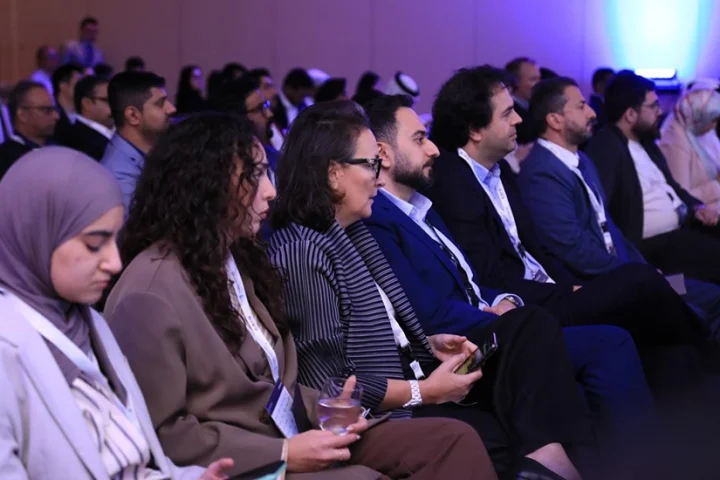The digitization of health services is expected to play a significant role in reshaping the health sector in the coming years. New technologies have the potential to transform the industry radically, but there are challenges to overcome such as regulatory barriers, financial constraints and difficulties in effectively digitizing patient data.
However, the future health sector is still expected to focus primarily on the patient; the individual who will acquire the role of a “health services consumer.” The industry will be formed based on the needs and the expectations of the “health services consumer” who will demand an upgraded experience for many services whereby personalization, comfort, speed and immediacy will all be critical. Outpatient care will become the new norm, with virtual and remote care ensuring universal access to health services.
Many thought of telehealth as beneficial in the pre-pandemic world, but mainly for people living in remote, rural areas. If someone had easy access to hospitals or doctors, they would prefer to pay an actual visit. But in 2020, telehealth usage surged. A recent report by McKinsey & Company revealed that telehealth utilization has stabilized at levels 38 times higher than before the pandemic in the US.
Here at home, in December 2019, Dubai Health Authority (DHA) launched the “Doctor for Every Citizen” smart service. Using this service, citizens can access free consultation through voice and video calls, 24/7. The service covers initial consultation and follow-ups with DHA-certified physicians, with the physician being able to request laboratory and radiology tests and issue electronic prescriptions.
At launch, Doctor for Every Citizen was aimed only at Emiratis, but soon after the spread of COVID-19, it was extended to all residents of the emirate of Dubai. It’s worth noting that from January 2020 to January 2021, Doctor for Every Citizen provided 83,000 remote consultations. Moreover, the authority plans to add more services such as the smart diabetic clinic, smart occupational clinic, smart smoking cessation clinic and smart geriatric clinic.
There is no doubt that a digital healthcare revolution is taking place. Technology advancements, continuous innovation, and increased bandwidth availability provide new ways for patients and providers to interact. As a result, providers are being challenged to meet the growing demand for speedy access to healthcare services where and when it’s convenient for consumers. With video collaboration and audio solutions deployed in thousands of healthcare organizations worldwide, Logitech is a trusted brand with proven experience, helping the healthcare industry meet this demand while improving care experiences and patient outcomes.
By embracing telehealth solutions healthcare providers can stay focused on improving patient outcomes while elevating the care experience for all involved. From behavioral health, outpatient, or ambulatory care to specialist consultations, remote patient monitoring (RPM), and care during a public health crisis, the possibilities are endless.
Collaborative healthcare solutions can take the provided services to the next level, but they also reshape the healthcare industry in more aspects. Through video collaboration tools, healthcare providers can enhance the training and education of their employees. Continuing Medical Education (CME) courses can be provided virtually for greater flexibility and convenience while reducing travel expenses and time. Likewise, solutions that provide Ultra HD video and clear audio can enable doctors and nurses to observe surgeries and medical procedures at other hospitals. The staff can be easily trained on new products, treatments and technology.
Provider collaboration can be effortless, as well. Utilizing reliable collaboration platforms, providers may confidently connect and consult with each other without adding steps to the workflows they’re accustomed to. Consequently, healthcare providers can expand their reach and treat more complex cases with the help of specialists.
Additionally, the benefits for the administrative staff cannot be disregarded. By modernizing meeting rooms, boardrooms, and multi-disciplinary team rooms (MDTs) with affordable, high-quality video collaboration room solutions, meetings and communication among clinical and administration staff can be more efficient. The equipment of small private rooms with purpose-built conference cams, webcams or headsets will enable consultation between medical staff. At the same time, administrative staff will be able to work from anywhere to continue supporting clinical teams.
In healthcare environments, high-quality, flexible solutions are needed to work across many different room types, including exam rooms, inpatient rooms, conference rooms and a provider’s office. And within those environments, it’s imperative that video collaboration tools work seamlessly with other applications and technologies being used.
Logitech offers a comprehensive portfolio of peripherals and devices as well as video conferencing solutions to help address all healthcare challenges. Logitech MeetUp is a bright example of a conference camera suitable for the demanding healthcare environment. MeetUp provides 4K Ultra HD optics for a sharp, distortion-free 120° view of both patient and room. Built-in beamforming mics support clear, natural conversation whether the sitter is down the hall or in a distant location. MeetUp’s all-in-one form factor is ideal for mounting on a mobile cart, plus it is super durable and easy to keep sanitized.
Technology will not replace doctors but comes to their aid, allowing them to do their job more quickly and efficiently with greater accuracy and quality, saving time that they will then devote to patients needing more care. In addition, all parts of the health ecosystem – from professionals, authorities, and the health industry to providers – should be able to integrate new digital technologies, like video collaboration tools, bringing the patient to the forefront of the industry.
By Loubna Imenchal, Head of Video Collaboration at Logitech for Africa, Middle East, Turkey and Central Asia.
This content has been sponsored.





















